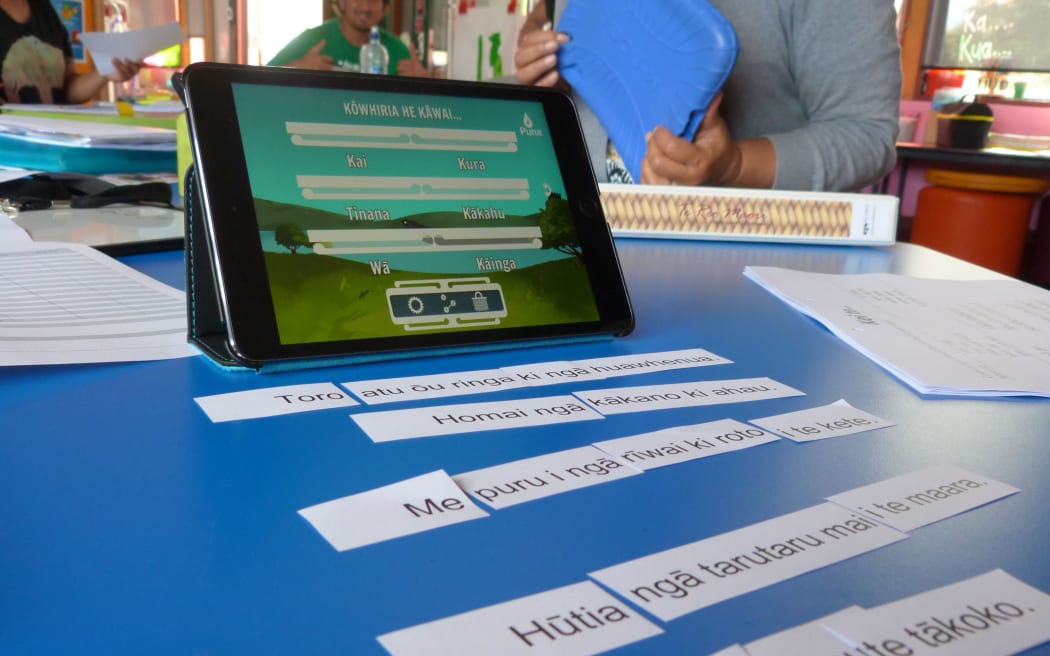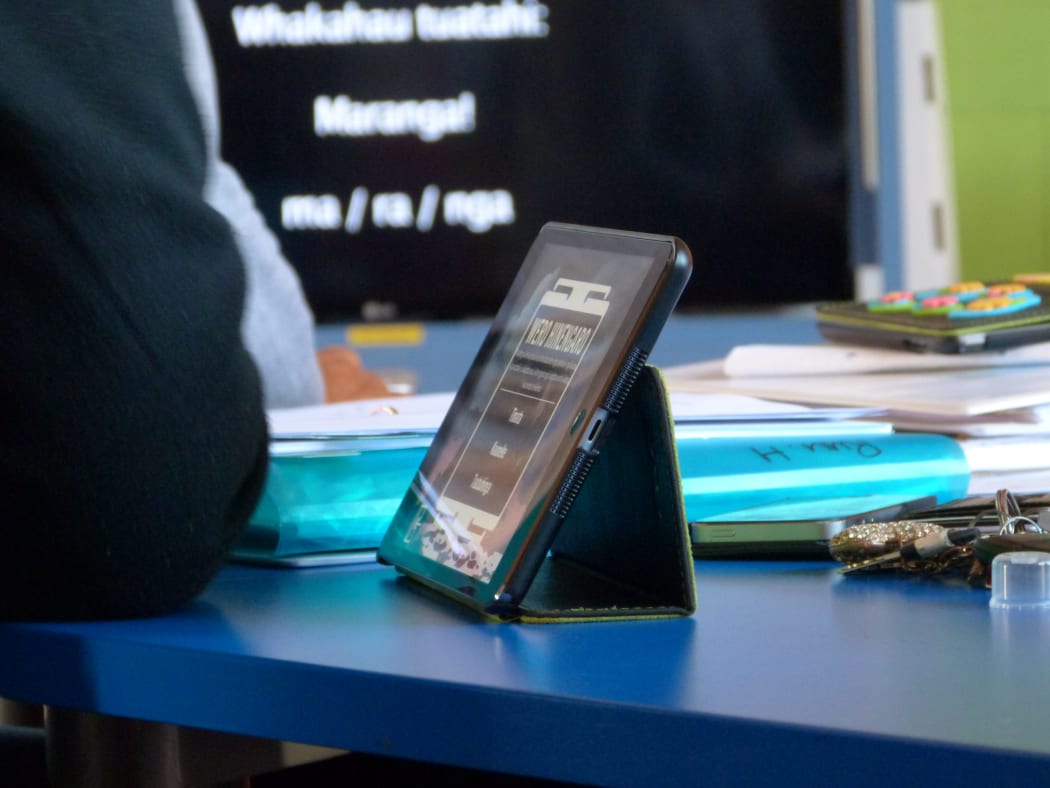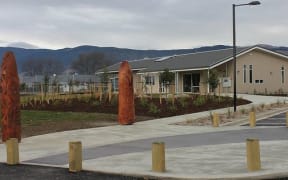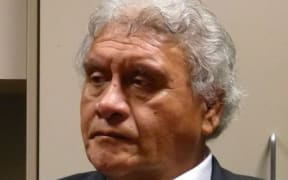A Victoria University lecturer says schools are missing out on digital resources to help boost the use of Te Reo.

Victoria University has developed two apps to help with Maori language learning. Photo: RNZ / Tom Furley
Tabitha McKenzie said when it came to technology, kura lag behind.
Every fortnight, Ms. McKenzie holds a lesson for teachers of Natone Park School where Te Reo is spoken regularly. Her job is to increase their Te Reo and work to develop the use of Māori in the classroom.
But her lessons don't have your traditional lines on the blackboard approach, with each teacher issued an iPad.
"So we've moved away from the traditional method of just being face to face and are moving towards using a blended approach so using mobile devices."
"I try to use apps as well as videos or podcasts. So in that way when they aren't with me in the off weeks, they are still able to have access to the material and to the learning, so it's going to that idea of language on the go: anywhere, anytime."
Victoria University has developed two apps, 'Kura' and 'Puna', to make the language more accessible and fun to learn, something Natone Park teacher Lovi Collier says is a great way of getting kids involve with learning.
"We've been doing food with these new entrants, and they pretty well much know what it is.
"This is a good way of identifying what they know and re-affirming what they've learnt."
With technology becoming increasingly common, Ms McKenzie said Te Reo in schools was not well catered for.

Each teacher is issued an iPad. Photo: RNZ / Tom Furley
"There's lots of fantastic resources that are available in English and teachers in Maori immersion settings are still either having to create it from scratch or use English ones but still have to translate into Māori."
The 2013 Census showed the percentage of the population who spoke Maori fell since 2006, and the number of Māori who spoke fluently dropped more than 5 percent.
With Te Reo on the decline, the Māori Language Commission acting chief executive, Poia Rewi, said it was not a matter of lack of resources.
"I think learning the Maori language is highly accessible: it's really the motivation and drive of an individual to access those avenues, are they committed enough to seek out the language?"
But, for Ms McKenzie, making it appeal to the digital generation can help drive students towards the language.
"Technology is the way of now, of the students that are in the classrooms at the moment, so i think it is a way to engage and motivate students."
But, as Ms Collier notes, it's not the only way to engage students.
"I think there's a place for everything," she said.
"There is a place for technology, there is a place for the actual hard resource. I suppose it depends on how you use it for different children because different children have different learning needs.
Ms McKenzie said decision-makers were heading in the right direction towards accomodating a digital generation.
"Always we're still well behind our mainstream colleagues, but we are getting more resources, websites, activities and services to help with increasing one's Maori language proficiency."




